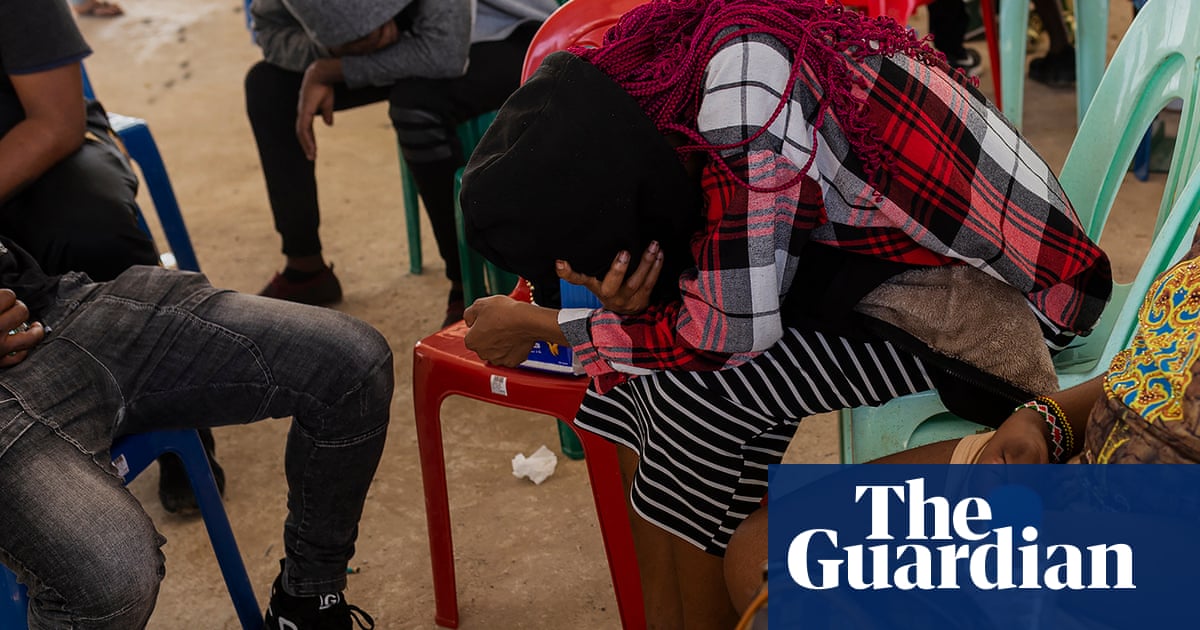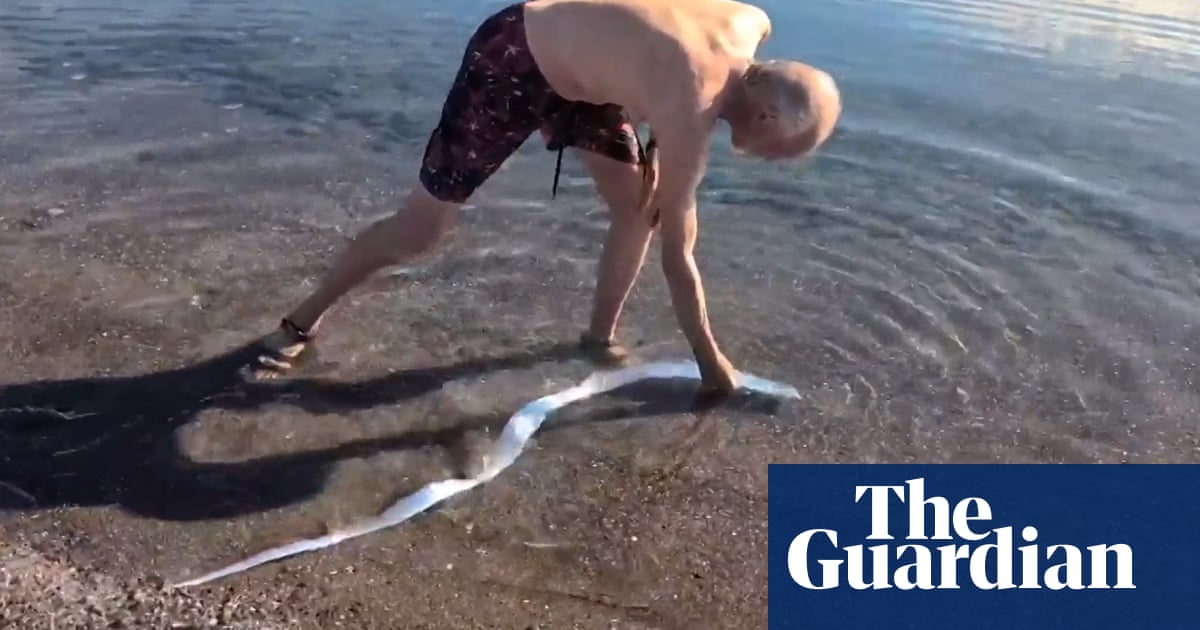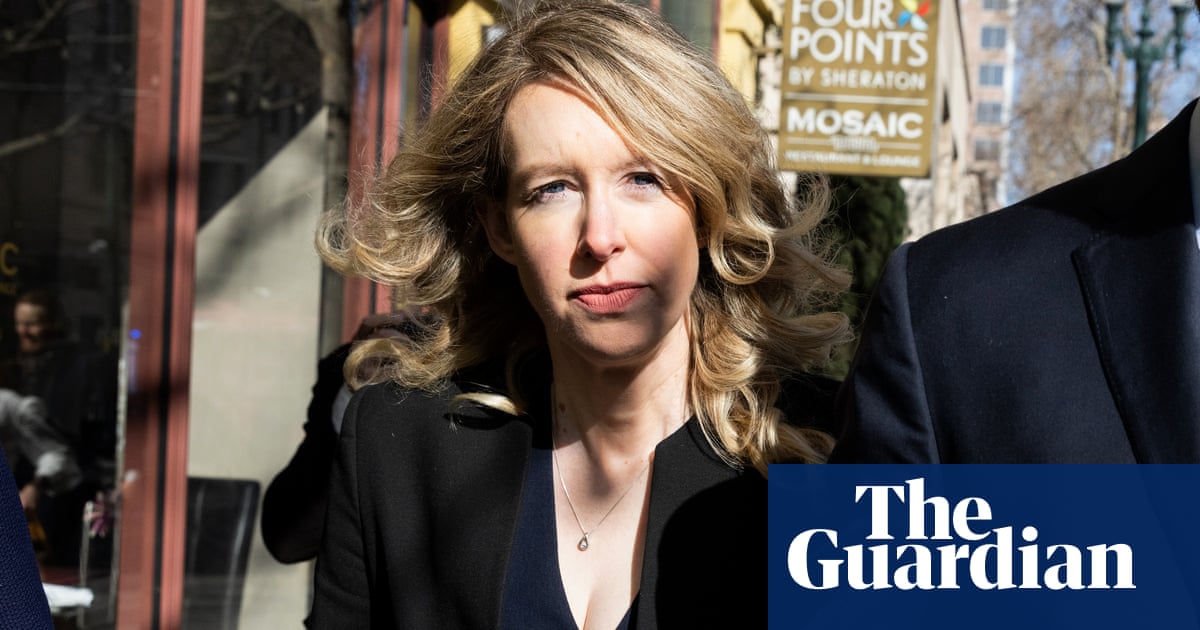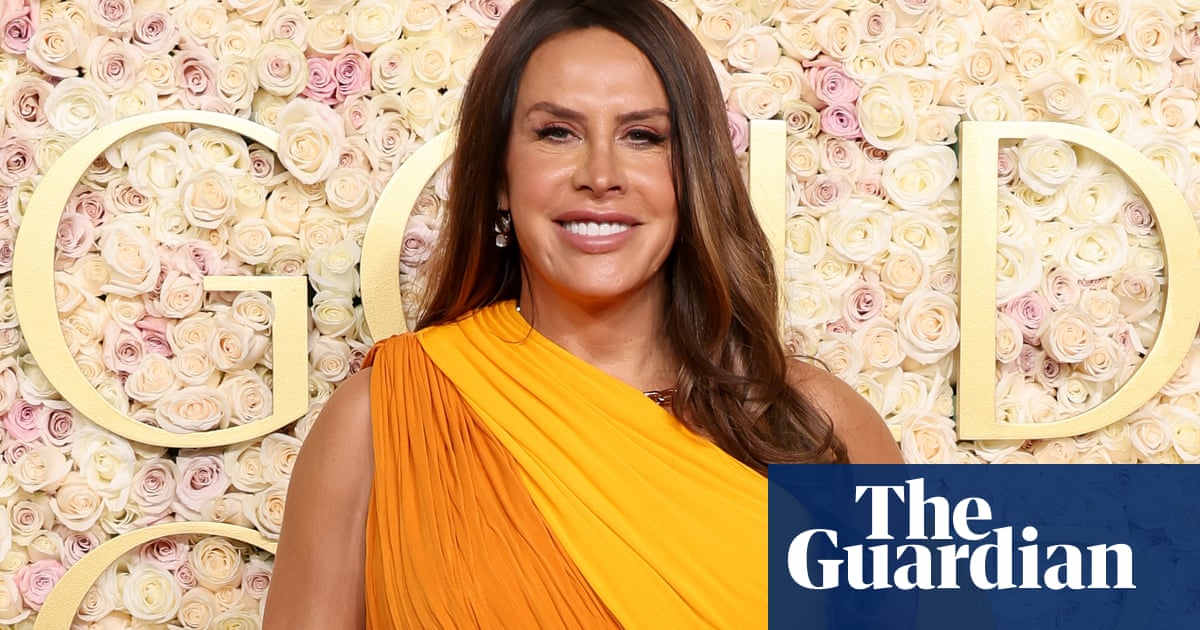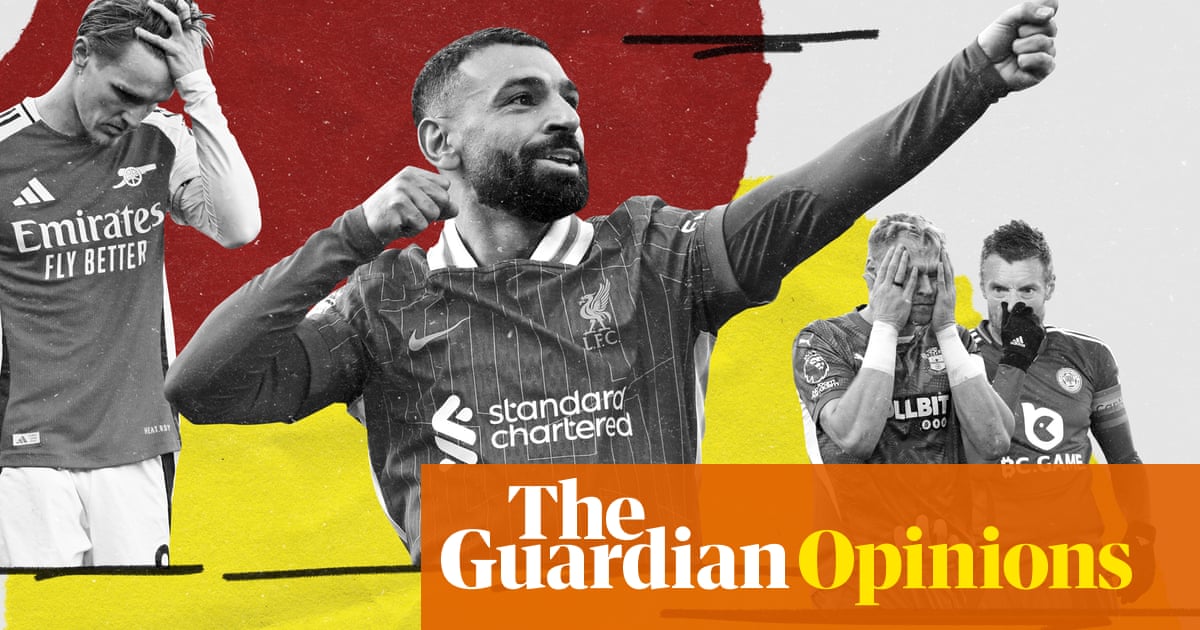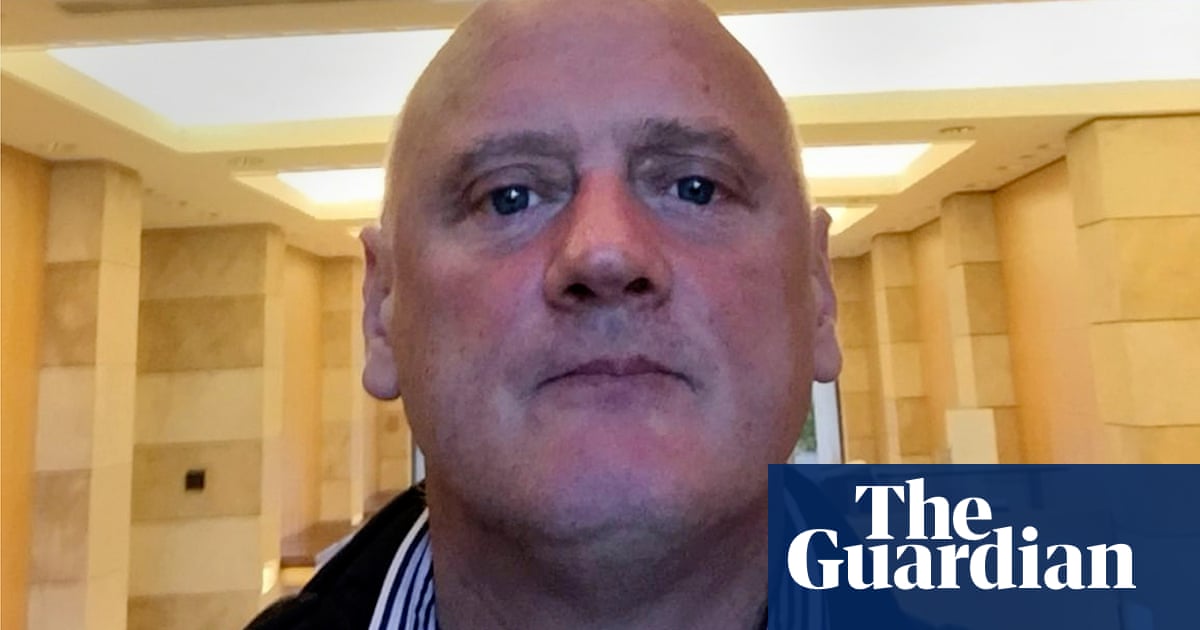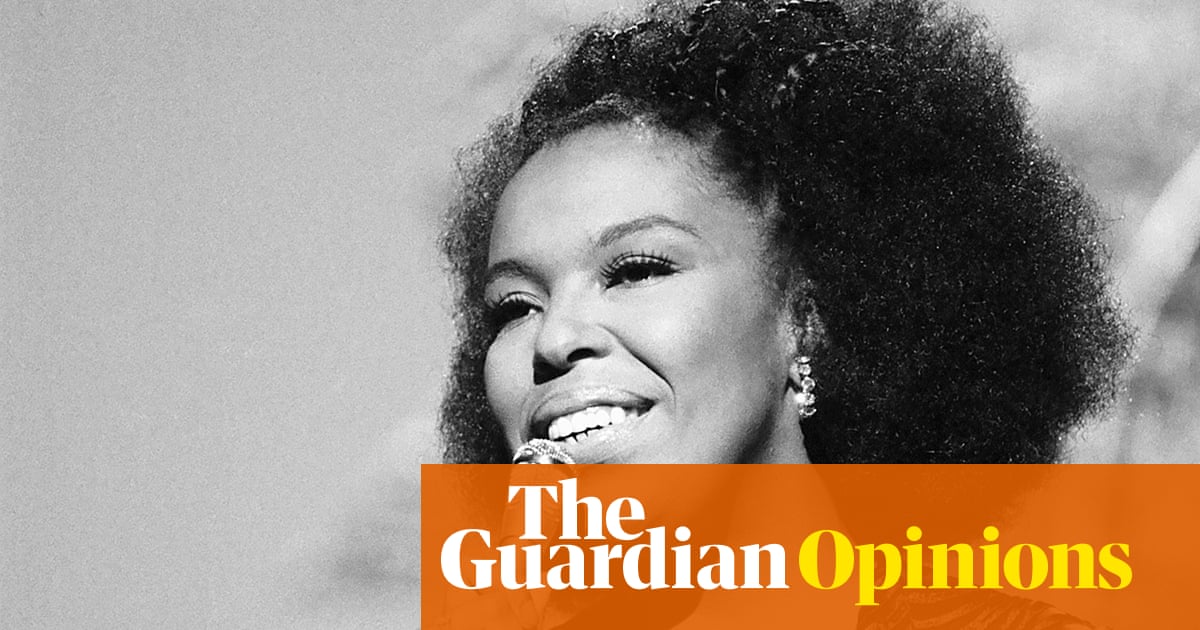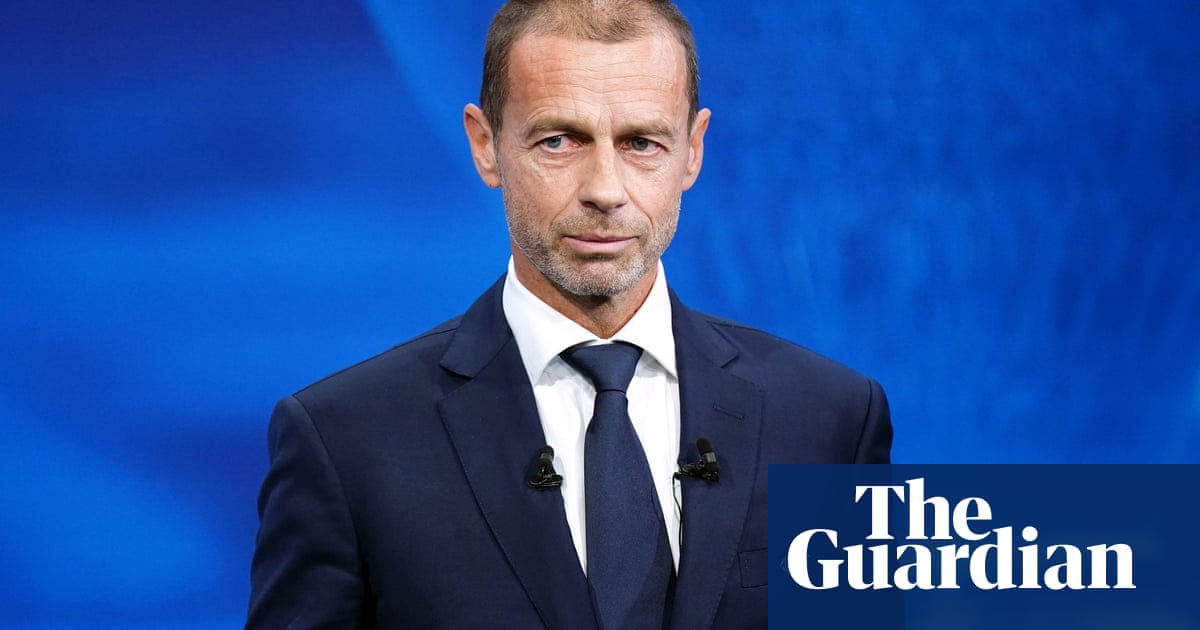There’s little in their new BBC sitcom, We Might Regret This, its co-creators Kyla Harris and Lee Getty shy away from. Harris also stars in the show, playing Freya – a charismatic, tetraplegic 30-something artist fresh from a transatlantic move to London. In need of a personal care assistant (PA), she turns to Jo (Elena Saurel), her chaotic, impulsive best friend. It doesn’t exactly go well. While storylines are entirely fictionalised, the terrain explored – between PA and care-receiver, yes, but also between friends: one disabled, one not – speaks directly to their experiences. And they don’t hold back.
Take what’s referred to as “The Shit Scene” in their shared shorthand. A particular on-screen sequence the pair believe gets to the heart of their series’s thumping success. “Bodily functions and fluids make us unnecessarily afraid,” says Getty, “and those fears feed directly into our fears of disability in general. Alleviating that fear, we hope, will help alleviate the fear of disability, too.” They make no apologies if what follows, here or on-screen, leaves you squeamish or icky; confronting sensibilities is very much their MO.
“So,” explains Harris, “Freya needs a bowel movement, and requires her friend’s assistance. It’s the first time this has come up, and Jo begins to gag. Embarrassed, Jo suggests Freya do something to her in response.” Getty looks unconvinced by her collaborator’s sanitised summation.
“I would add,” she jumps in, “that the initial help required some ‘manual stimulation’.” Today, to help illustrate, Getty wiggles her index finger in my direction. Aware she’s left her friend humiliated, Jo insists Freya returns the favour: “Just put a finger in my ass, for equality’s sake.” If both are embarrassed, the thinking is, then neither are. “And honestly,” Getty continues, “it’s just a woman taking a shit on screen, something that so rarely is depicted – it’s taboo.”
Neither are fazed by this topic, or any other, frankly. They’re clear: you shouldn’t be either. Much of what has made We Might Regret This a hit with both audiences and critics, is that feeling of stepping into uncharted telly territory: a fully realised disabled character, complete with flaws and all: sex, drugs and messy relationships; her deep-rooted desires and poor choices. And the unique interactions and dynamics between care givers, care-receivers, and those in their orbit. Seasons two and three have already been commissioned.
“When you become disabled,” says Harris, “there’s a fear of sharing your body. A fear of losing mobility.” Countless questions, highly personal: “Will you have a relationship again? Have sex? All these things aren’t talked about, but also have deeper meaning. Will I be able to find connection? Will I be lovable? Will I be able to make decisions for myself? Those are the issues we are trying to confront, and say yes: you will find love. You can be autonomous. And not only is sharing your body possible, it can be joyful and intimate, a part of everyday life.”
We’re speaking over Zoom, Harris and Getty both logging in from their respective Brighton kitchens. Much like the characters they’ve written, theirs is a sisterly dynamic: full of tenderness, shared references and subtle comments. Both know a little too much about their best friend to be at ease with an outsider listening in. Harris and Getty have been close since university, and Getty worked as Harris’s PA in their friendship’s early years.
Initially, Getty believes, we find this stuff awkward and uncomfortable. “‘Oh my God, if I couldn’t wipe my own ass…’ is a common point people return to when thinking about disability. Or, ‘Someone will see me naked.’ We want to say yes, maybe, and that’s actually OK.” Exposure alleviates these anxieties. “We saw it firsthand on set.” Take, she suggests, all the jugs of fake urine dotted around locations, used as props. At first, most involved felt uneasy being near them. “Eventually, we just walked around the set carrying them with little thought. Whether it’s seeing someone else’s urine, or naked disabled bodies, repeated exposure takes all that away.”
That’s not to say the prospect wasn’t daunting. Less so for Getty, maybe, who remained throughout filming firmly behind the scenes. “We went as deep as we could,” she says, “to write vulnerable, funny, edgy ideas that haven’t really been explored on TV before. Then Kyla would remember she had to play the role of Freya.”
“Lots in the show is about taking the sting out of shame,” Harris says, “releasing people from fear. I definitely don’t believe in normal, but I believe in ‘normalising’ disabled bodies or bodily functions. We all need to pee. To shit. We all have flesh. So why are we afraid? I’d also like to reiterate,” she adds, “that I’ve never had a finger up Lee’s bum and I don’t need to shit like that any more either.”
Harris and Getty have collaborated before, most recently as writers on Patrice: The Movie. Last month, they were selected as Bafta Breakthroughs: a year-round initiative providing industry support, networking opportunities and professional development for a selection of emerging artists. “We’ve lived life on the fringes of society,” Harris feels, “so for us to be recognised by such an institution is incredible. We’ve been working so hard, not only with this series but in the industry, to open doors for ourselves. To be recognised as a breakthrough feels correct, honestly.”

Both women are Canadian. Harris, born in Ontario, spent her first decade in a Buddhist community, before the family moved to Vancouver Island. “I was always interested in acting and theatre,” she says, “then I became disabled at 15, and got the feedback from all over – previous supporters, the media, in school – that I wouldn’t be able to be both disabled and an actor.” It was devastating to be told her dream was dead. “Until then, I was heavily into theatre at school. Then I no longer got any roles. Local theatre groups also. Back then, Daniel Day-Lewis in My Left Foot was the extent of representation of disability; a non-disabled actor playing the character. So I switched focus and got a scholarship to film school in Vancouver, where I met Lee.”
In their series, full of richly detailed plot and nuanced characterisation, there’s an obvious, and deliberate, omission: how Freya became disabled is left undisclosed. For similar reasons, it’s a story Harris, too, prefers not to share. “There’s a movement now of disabled people reclaiming our stories, taking control of which stories we decide to tell.” For a long time, she felt that ownership was in the hands of others. “I’d just be waiting for a friend in the street,” she says, “and a stranger would be like: ‘Hey, what happened to you? What’s wrong with you?’ It’s such an invasive question, essentially: ‘I see you’ve experienced tragedy, now tell me about it on demand.’” For a long time, Harris obliged. “I’d just tell people,” she says, however uncomfortable it made her. “Then I went through a phase of just making up different stories at every opportunity. Now, though, I just say it’s a personal story of mine that I don’t like to share. It’s also a way of moving away from the medicalised model of disability toward a social one: less about me being a medical object, but a whole human being.”
Getty, meanwhile, was raised in Calgary, Alberta. “I left home at 14 or 15,” she says, “and moved all over, bouncing around family members and friends.” For prolonged periods she stayed with her grandmother, who lived with chronic pain. “Caring for her – alongside learning about what her life looked like, how she was perceived and how she met her needs – was so informative for me. And fed into the ease in which Kyla and I came together as friends.” Before college, she worked all sorts of strange jobs: Arctic airport staffer; night-shift phone operator at an escort agency.
Harris was 19 and Getty 22 when the pair became friends. “What was on the inside didn’t match the outside,” Harris says of Getty, “and that’s how I felt at the time, too.” In Harris’s case, people couldn’t see past the wheelchair. “Whereas Lee was a striking, 6ft-something with bleached blonde hair, dark eyeliner and a uniform of yellow miniskirts and knee-high boots. We’d both be judged for how we were perceived, externally.”
Today, Harris carefully considers who she hires to work for her as a personal care assistant; she feels a need to separate the personal and professional. “But I had no boundaries at that time,” she says. “If I needed a PA, the first thing I’d do was ask friends who needed money. And I never wanted to feel like someone’s work, so I hired my friends. Lee needed a job, and I needed a PA…”
In We Might Regret This, the interplay is deftly explored. Too often, Getty feels, it’s a relationship regarded as two-dimensional. “It’s a symbiotic process of two people almost fusing together,” she believes. “Sharing your different needs and finding out how to solve them together: you grab something for us to eat, I’ll order our cab, then you help me put on my shoes. It’s two people supporting each other, really, in interdependence, far more than you might assume. It brings connections and more intimacy than you could ever perceive.”
All this comes with challenges, too. For years, Getty worked as Harris’s PA, sporadically. “In the beginning,” says Getty, “we felt together we could do anything. We paid little attention to communicating our needs, and took everything on.” Soon, though, came friction. “It was difficult to navigate being an employee – doing what I was told – and being a friend with an opinion on those suggestions.” Getty would impose her own ideas on what Harris should do. “It must have been unbelievably frustrating: I still had unconscious ableism. If Kyla wanted a nap, or was feeling low and wanted a bed day, I’d be pushing her to get up, put lipstick on, face the world.” In the end, mutual agreement was reached to steer clear of further caring work. “I realised I didn’t want to be paid to help Kyla,” says Getty, “I wanted to do it as a friend. I also didn’t want to have to do everything she asked of me. So, we decided to be friends, where help is reciprocal.”

Alongside creating and writing the show, Harris and Getty are associate producers, involved in every element of production. Perfecting the minutiae felt pivotally important. “We’re so under-represented,” says Harris, “and rarely afforded the opportunity to tell our own stories. The dominant narrative around disability is either tragedy or inspiration. We’re so thirsty for something new and different – nuanced and truthful – rather than just what non-disabled people perceive of our experiences.”
The result is six episodes of groundbreaking television. Thoughtful and challenging, yes. Deeply funny to boot. All sorts is explored: the inaccessibility of our cities; the confusing nature of being treated like a tickbox for diversity. “We get messages all the time from the disabled community,” says Getty, “and it’s so rewarding to know we got it right. That people feel seen.”
Deeply embedded ableism comes up regularly in the script. It’s something Harris felt firsthand while shooting. When filming a particular street scene, the road wasn’t closed; members of the public were passing by. “Someone came up to me and said: are you really crippled?” A total stranger had, in front of cast and crew, openly directed an offensive, ableist slur in her direction. Everyone heard. “There was security. I was with the director and the first AD. They were all so shocked, but froze. I was waiting for someone else to jump in and say something, but nobody did. So there I was, having to respond to this person myself.” Harris held it together, but, afterwards, was shaken. Not only by the language itself. “It’s just, I do think if someone had been racially or homophobically abused in front of the team, it would have been stopped and shut down immediately. I don’t think there should be a hierarchy of identities at all, but ableism needs to be recognised to be as harmful as racism, sexism and homophobia. Currently it’s not.” The incident left its mark on the production. “It was actually something that we spent a lot of time processing as a crew afterwards and it opened up wonderful conversations and increased our team’s resilience.”
Sometimes, we overcompensate. It’s a phenomenon We Might Regret This tackles head on. While casting for a modelling job, Freya is told “disability is very in at the moment” by agency staffers. “They hyper-fixate on her as a disabled person,” says Getty, “rather than listen to the nuance she’s trying to convey.” That’s happening in ad campaigns: this is the age of “‘diversity’ being forefronted. It’s happening in TV commissioning, too: diversity quotes and guidelines need adhering to. Where does representation veer into tokenism?
“Honestly,” she replies, unblinking, “if tokenising means we get our own series, and Trojan horse our ideas in, then yeah: fucking tokenise me. That’s my attitude.” Historically, these stories have been hidden from view. “It’s so important that we get them told. Disabled people. People of colour. Queer and trans. The underrepresented.”
“It can’t just be about disabled creators being allowed to tell their specific story,” adds Getty. “We need those creators in every aspect of work. Writers rooms. Decision-making positions. It’s about expanding. Tokenised or not, then we can talk about all the stuff you don’t even realise we have to say yet.”
Distilled down, We Might Regret This’s magic comes in its treatment of disability: neither the focus of the entire story, nor a minor detail all but ignored. “I look at it this way,” Harris says. “Being disabled cannot be separated from any part of my life. It’s why I say I am a disabled person rather than a person with a disability. That doesn’t mean I talk or think about being disabled all the time, but it does affect how people perceive me, how I experience the world, the regularity with which I’m confronted by barriers.” Through this lens, We Might Regret This was approached. Not ignoring, not exaggerating. Just putting it out there. “People often start with the assumption that disability is a bad thing. That I don’t want to be defined by it. But I am defined by my disability. I am OK with that. It’s just not the only thing that defines me.”
We Might Regret this is on iPlayer now. Bafta Breakthrough is supported by Netflix

 2 months ago
54
2 months ago
54

